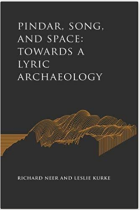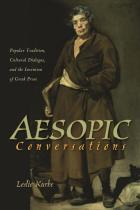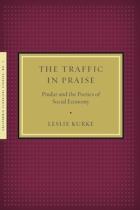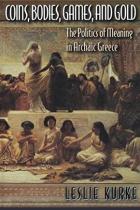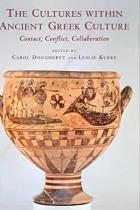
Leslie Kurke
Gladys Rehard Wood Chair, Professor of Ancient Greek & Roman Studies and Comparative Literature; Department Chair, AGRS
Research Areas
Ancient Greek literature and cultural history, Archaic Greek poetry, Herodotus and early prose, Greek popular culture, the constitution of ideology through material practices, genre, the politics of form
Biography
I am currently writing a book on ancient Greek chorality (in Greek, choreia) that sets in dialogue the theorizations of fifth- and fourth-century prose writers (Herodotus, Plato, Xenophon, and Aristotle) with the internal “theorizing” of older Greek poetic texts. In archaic and classical Greece, all poetry was composed to be performed, and one central performance mode was by groups of non-professionals, usually segregated by age and gender, who sang and danced in unison, in a public dancing place. Choruses were an essential component of social and religious life in the ancient Greek city—a means to forge communion with the gods as well as constitute human community among performers and spectators. Choral performance was such a central aspect of culture that it became for the Greeks an image for many different kinds of orderly, cooperative and/or hierarchical groups: thus many Greek texts refer to the circular “dance of the stars,” or cosmic dance, while in some cities, Choros (dancing place) was the name given to the central agora or gathering space that defined the polis. The book focuses on several different native Greek ways of thinking about, or thinking with, choreia. The combination of different kinds of sources allows me to tease out different aspects of the Greeks’ modelling and imagining of chorality: choreia as a form of bodily discipline, choreia as a model for hierarchical or egalitarian politics, and choreia as an assemblage of disparate parts. The logic of starting with the later prose texts is that they offer explicit theorizing and sociological analysis of what may be misrecognized, or not explicitly articulated, in earlier poetic sources, while the poetic sources by and large offer us a more vivid phenomenology and aesthetics of the experience of choreia (from the twin perspectives of dancers and audience).
I have spent much of my research life working on ancient Greek literature and cultural history, with special emphasis on archaic Greek poetry in its social context; Herodotus and early prose; ancient Greek popular culture; the constitution of ideology through material practices; and the interactions of performed poetry and architectural space. Each of my four earlier books explores different interactions of word and world, of literature and its “others.” The Traffic in Praise (1991/2013) traced the imbrication of Pindar’s victory odes in different economic, social, and political systems in fifth-century BCE Greece. Coins, Bodies, Games, and Gold (1999) analyzed literary texts together with a whole set of symbolic signifying practices in the Greek archaic period. By linking the imagery of metals and coinage to stories about oracles, prostitutes, Eastern tyrants, counterfeiting, retail trade, and games, the book traces the rising egalitarian ideology of the city, as well as the ongoing resistance of an elitist tradition to that development. My third book, Aesopic Conversations (2011), used the figure of the non-Greek slave Aesop and traditions about his life to excavate ancient Greek popular culture in ongoing dialogue with the texts of Greek high culture. My fourth book, co-authored with the art historian Richard Neer, Pindar, Song, and Space: Towards a Lyric Archaeology (2019), read the occasional poems of Pindar together with their archaeological and architectural surround in performance as cooperative technologies for “making place” and for the ordering of space and place.
I was educated at Bryn Mawr College (BA Greek literature) and Princeton University (MA, PhD, Classics) and held a post-doctoral fellowship at Harvard before joining the faculty at UC Berkeley in 1990. At Berkeley, I am a member of the Departments of Ancient Greek and Roman Studies and Comparative Literature, and an affiliated faculty member in the Department of Gender and Women’s Studies.
Publications
Books
Co-Authored with Richard Neer, Pindar, Song, and Space: Towards a Lyric Archaeology (Johns Hopkins University Press, 2019).
Aesopic Conversations: Popular Tradition, Cultural Dialogue, and the Invention of Greek Prose (Princeton University Press, 2011).
Coins, Bodies, Games, and Gold: The Politics of Meaning in Archaic Greece (Princeton University Press, 1999).
The Traffic in Praise: Pindar and the Poetics of Social Economy (Cornell University Press, 1991; Second online edition: California Classical Studies Number 1, eScholarship Repository, 2013; http://escholarship.org/uc/item/29r3j0gm).
Edited Volumes
Editor (with Margaret Foster and Naomi Weiss), Genre in Archaic and Classical Greek Poetry: Theories and Models (Brill, 2020).
Editor (with Carol Dougherty), The Cultures Within Ancient Greek Culture: Contact, Conflict, Collaboration (Cambridge University Press, 2003; Paperback reprint, Cambridge University Press, 2011).
Editor (with Carol Dougherty), Cultural Poetics in Archaic Greece: Cult, Performance, Politics. (Cambridge University Press, 1993; Paperback reprint, Oxford University Press, 1998).
